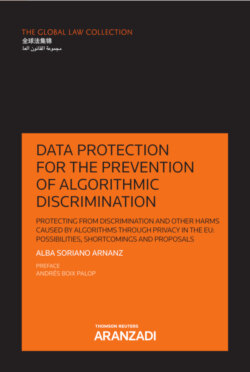Читать книгу Data protection for the prevention of algorithmic discrimination - Alba Soriano Arnanz - Страница 11
На сайте Литреса книга снята с продажи.
1.3. The fourth V: value
ОглавлениеThe information provided by big data is what brings its conceptualisation full circle. The main reason behind big data becoming such an important phenomenon lies in the value of the information or knowledge it generates,29 which is why the previous point, referred to data processing and analysis, is so relevant.
The data that is now available is not necessarily better than the data generated by traditional sources;30 in fact, big data generally contains a lot of irrelevant information before it is processed.31 However, given the computational capacity of current processing systems, organisations and individuals expect to extract the relevant data from all the noise and thus generate more valuable information even when the initial dataset is not clean.32 Hence, a trade-off between volume and quality of the raw data is accepted.
Big data processing systems are able to generate quantifiable information on many aspects of the world that had never before been examined, such as pictures, videos or other unstructured pieces of information,33 using quantitative approaches.34 Whether the information generated can actually be considered to be valuable knowledge for the organisation processing the data is something that is fully subjective and will depend on the needs and objectives it has. There are however two general conditions that the information should fulfil. Firstly, the information must be useful for the organisation’s objectives, which amongst other things means it must provide new knowledge.35 Additionally, Ward and Barker point out the need for the outcomes to be trustworthy or, in other words, veracity.36 In general, only to the extent that the information generated is accurate will it be of any use to the organisation processing big data.
It is important to finally point out the fact that, in many cases, the individual or organisation using the data generated is not the one processing it. In fact, a whole economic sector known as the data services sector has been created surrounding the new technologies related to big data in order to acquire and process information so as to later sell it on to other companies which then use it to make decisions regarding individuals’ chances at getting a loan, insurance or even a job.37 Thus, the value of the information obtained will largely depend on the needs of the organisation that will use the data.
This difference between the individual or organisation processing the data and the one using the results obtained is reflected in the GDPR, which distinguishes between the concepts of “controller”, who is “the natural or legal person, public authority, agency or other body which, alone or jointly with others, determines the purposes and means of the processing of personal data”,38 and “processor”, who is “a natural or legal person, public authority, agency or other body which processes personal data on behalf of the controller”.39 This terminology will be used throughout the book to identify those responsible for data processing systems.
